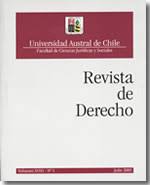Triangular fraud in Chilean criminal law, especially procedural fraud
Main Article Content
Abstract
This article deals with the interpretative difficulties of the so called triangular fraud, which is a fraud where the deceived subject that carries out a detrimental disposition is one different than the holder of the affected patrimony. Specifically, it analyzes the type of relationship that there should be between the deceived and the affected patrimony to accept that the first carries out the typical disposition demanded by the fraud. It is stated that one simple de facto power is not enough, but a faculty to order is required. Finally, the particular case of procedural fraud is analyzed, with special concern on the conceptual possibility of deceit and error in a highly formal context. With regard to the error demand, the paper assumes an interpretation that makes the concept normative, stressing its function over the psychic fact with which it has been traditionally associated.

